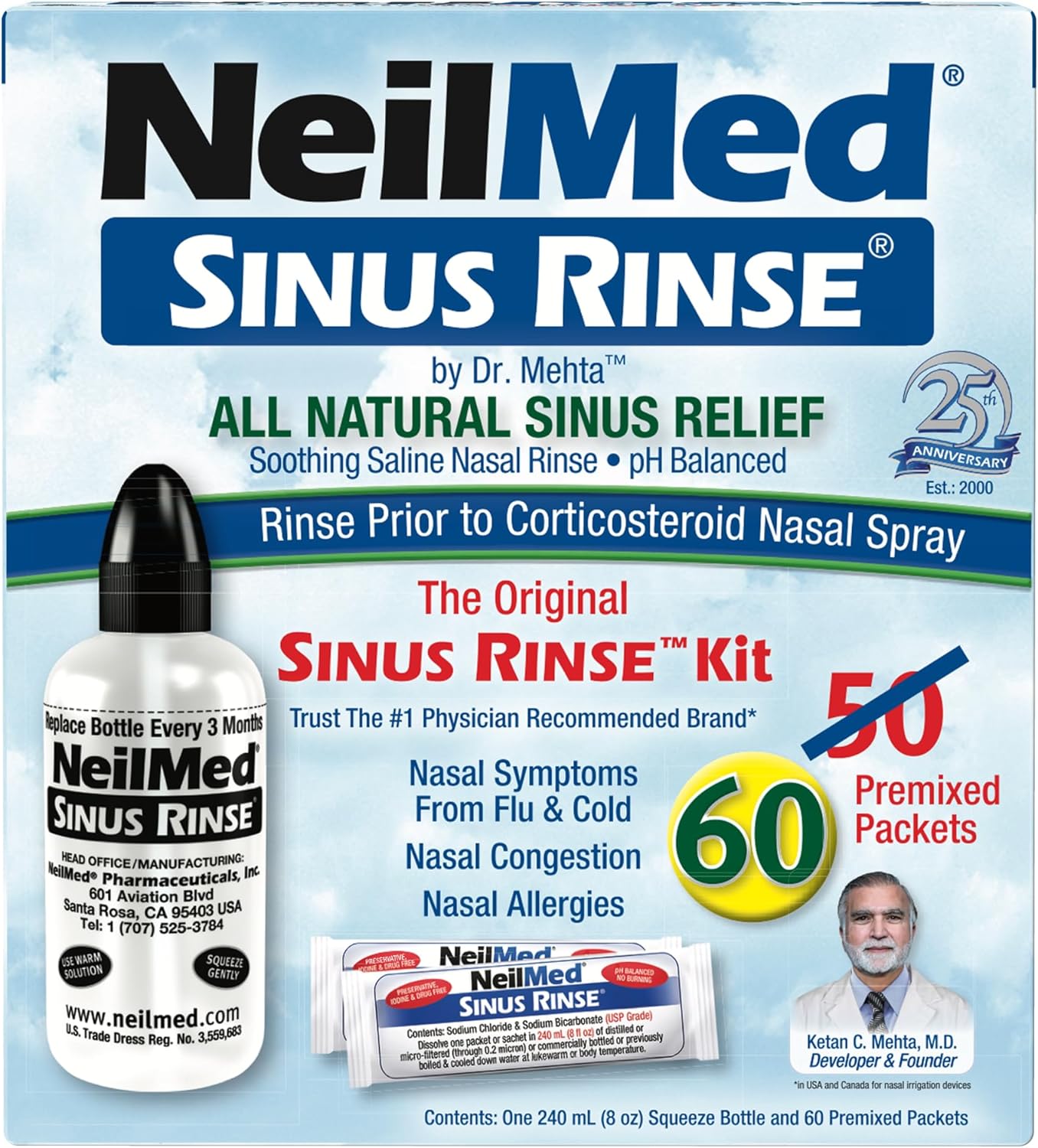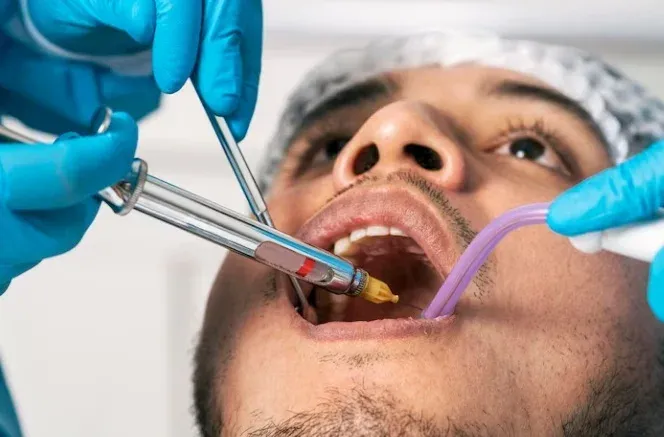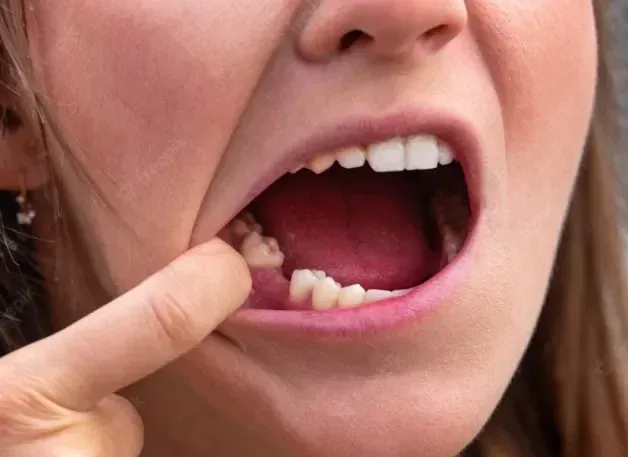Toothache But Dentist Says Nothing Wrong: Here’s the Truth
You’re sitting in the dental chair, exhausted from a toothache that keeps you up at night.The…
You’re sitting in the dental chair, exhausted from a toothache that keeps you up at night.
The dentist looks at your x-ray, taps on the tooth, checks your gums… then says the sentence you were not expecting:
“I don’t see anything wrong.”
But your tooth still hurts. A lot.
If this sounds familiar, you are not imagining things. Many people experience tooth pain but dentist says nothing wrong. The pain is real – the source of the pain is just harder to find.
In this guide, you’ll learn:
-
Why a tooth can hurt even when x-rays look normal
-
The hidden causes of tooth pain with no cavity or infection
-
How sinus, TMJ, bruxism, and nerve problems can mimic a dental issue
-
Practical steps and safe home care for pain relief
-
When to see an emergency dentist or doctor right away
Disclaimer: This article is for informational purposes only and does not replace a diagnosis from your dentist or doctor. If you are experiencing severe, constant, or unexplained dental pain, always see a dentist or physician.
Why does my tooth hurt if my dentist says nothing is wrong?
A classic toothache usually has an obvious dental cause:
-
A cavity (tooth decay)
-
An infection or abscessed tooth
-
A broken filling or cracked crown
-
Advanced gum disease around the tooth
In those cases, the problem shows clearly on an x-ray or exam.
But sometimes you’re experiencing tooth pain and:
-
The tooth looks healthy
-
The x-ray shows no tooth decay or abscess
-
The dentist says nothing obvious is wrong
When that happens, there are two big possibilities:
-
There is a subtle dental problem (like tooth sensitivity, micro-cracks, bite issues, early gum disease) that is hard to see.
-
The toothache is actually referred pain from somewhere else: sinus infection, TMJ, muscles, or even a nerve condition such as trigeminal neuralgia.
The trigeminal nerve supplies feeling to your teeth, jaw, and face. Because its branches overlap, your brain can misread the signal: a problem in the sinus or jaw joint may feel like pain inside the tooth.
So a “normal” x-ray does not mean the pain is fake. It means the real cause of tooth pain needs a deeper look.
[Important] Tooth decay, bleeding gums, and persistent bad breath are often signs of deeper oral health issues. Ignoring these problems can lead to more serious dental complications over time. Supporting your teeth and gums with a proven dental formula may help reduce bacteria, improve gum health, and keep your mouth fresh and clean every day.
What your dentist probably already ruled out
Before talking about hidden causes, it’s useful to know what a good dentist checks first. When you say “my tooth hurts”, the dentist will ask:
-
Which tooth hurts?
-
What type of pain is it – dull ache, sharp pain, throbbing, electric?
-
Does it hurt with hot or cold, or only when chewing?
-
Does the pain come and goes, or is it constant?
Then they will:
-
Examine your teeth and gums for visible tooth decay, broken fillings, or gum disease
-
Tap on the teeth (percussion test) to spot an abscessed tooth
-
Test cold or heat to see how the nerve inside the tooth reacts
-
Take x-rays to look at the tooth roots, jaw bone, and wisdom teeth
If they say there is no obvious dental problem, they have likely ruled out:
-
Large cavities
-
Advanced infection inside the tooth
-
Big cracks or broken pieces
-
Serious problems with the surrounding bone
What remains are the “invisible” causes that are trickier to spot.
Hidden dental causes: tooth pain but no cavity or infection
Sometimes tooth pain without cavity is still coming from the tooth itself – just in a way that x-rays don’t show clearly.
Tooth sensitivity and gum recession
If you feel a sharp pain when you drink something cold or breathe in cold air, you may have tooth sensitivity rather than a classic toothache.
Common reasons:
-
Worn tooth enamel from acidic drinks or over-brushing
-
Gum recession exposing the tooth roots
-
Tiny areas of erosion around the gum line
The exposed dentin and tooth roots contain thousands of microscopic tubules that lead directly inside the tooth to the nerve. This can cause:
-
Pain or sensitivity to cold, hot, sweet, or sour foods
-
Pain that comes and goes and does not show on x-ray
-
A tooth that feels bad but has no cavity or infection
What helps:
-
Switching to a soft toothbrush and gentle brushing to protect the gums
-
Using a desensitizing toothpaste twice a day
-
Avoiding very hot or icy drinks for a while
This type of care of your teeth can reduce sensitivity and help the pain go away without drilling or root canal therapy.
Amazon’s Choice 🏆
Sensodyne Pronamel Intensive Enamel Repair (4 Pack)

Why it helps:
- Active Repair: Deeply penetrates enamel surface.
- Stop the Zaps: Blocks nerves from cold/hot triggers.
- Value Pack: 4 tubes ensure consistent treatment.
Cracked tooth syndrome and micro-cracks
A tooth can have a small crack that’s almost impossible to see:
-
You feel pain when chewing or pain when chewing then releasing the bite
-
The pain may feel sharp or like a zap in one area
-
The x-ray looks normal because the crack is vertical or very fine
This is often called cracked tooth syndrome. The crack flexes when you bite, irritating the pulp inside the tooth and leading to pain that comes and goes.
Dentists may use:
-
A bite test with a small plastic device on one cusp
-
Special lights or dyes to highlight cracked teeth
-
In some cases, 3D imaging (CBCT) for better detail
Treatment can range from smoothing the tooth and adjusting the bite to placing a crown or, if the pulp is damaged, performing root canal therapy to save the tooth.
Early gum disease and constant tooth pain without cavity
Mild gum disease and early periodontitis can also cause tooth pain:
-
Inflamed gums may bleed or feel sore
-
Pockets form around the tooth roots
-
You may feel a dull, constant ache or pain in the mouth near certain teeth
Because these are more about the gum tissue than the tooth itself, the tooth may look healthy and show no decay, while you still feel pain.
Professional cleaning, scaling and root planing, and better home care (floss, interdental brushes) can treat the gum disease and reduce tooth pain over time.
If you’re looking for a simple and effective way to support your oral health, Dentolyn is an excellent choice. Its natural, science-backed ingredients help strengthen gums, protect teeth, and promote fresh breath—all in just one convenient daily tablet. Learn more about how Dentolyn can fit into your daily routine and start taking steps toward a healthier, cleaner mouth today.
Tooth grinding (bruxism): the overnight habit that causes unexplained pain
Bruxism – grinding or clenching your teeth – is a major hidden cause of unexplained tooth pain.
-
It usually happens at night, so you don’t notice it.
-
It can put enormous force on teeth, leading to micro-cracks, loose teeth, and jaw pain.
-
You may wake up with jaw pain, headaches, or several teeth that hurt without a cavity.
Typical signs your dentist will look for:
-
Flattened or worn-down biting surfaces
-
Small chips at the edges of teeth
-
Sore jaw muscles or limited opening
The pain from bruxism often:
-
Comes and goes depending on stress levels
-
Affects several teeth rather than just one
-
Feels like pressure or bruising more than classic sharp pain
What helps:
-
A custom or boil-and-bite night guard to protect the teeth when you’re grinding your teeth
-
Stress management, better sleep habits, and sometimes physical therapy for the jaw
-
In severe cases, specialist TMJ or orofacial pain treatment
#1 Best Seller 🔥
DenTek Professional-Fit Dental Guard (Boil & Bite)

Stop morning jaw pain:
- Custom Fit: Microwaveable for a perfect mold.
- Budget Friendly: Professional protection for less.
- Comfort: Slim design, easy to sleep with.
When a “toothache” isn’t from the tooth at all (referred pain)
Many people are surprised to learn that a toothache but dentist says nothing wrong can be completely non-dental.
This is where the concept of referred pain comes in: your brain feels pain in one place although the real problem is somewhere else.
Sinus infection: pressure on the upper teeth
The maxillary sinus sits right above the upper teeth. When you have a sinus infection or severe allergies:
-
The sinus lining swells and fills with fluid
-
Pressure builds up and pushes on the tooth roots
-
You feel a dull, throbbing ache in several upper molars on one side
Tap Test (simple sinus check):
-
Gently tap with your fingernail on several upper teeth in a row.
-
If all of them feel similarly tender, especially during a cold or flu, the source of the pain may be the sinus, not a single tooth.
-
If only one tooth hurts sharply, it’s more likely a dental issue.
Other sinus clues: blocked nose, facial pressure, headache that gets worse when you bend forward.
For Upper Tooth Pain ✅
NeilMed Sinus Rinse Kit (Complete System)

Relieve the pressure:
- Instant Relief: Flushes mucus putting pressure on roots.
- Drug-Free: No drowsiness or side effects.
- Doctor Recommended: Safe and easy squeeze bottle.
TMJ disorder and jaw muscle problems
The temporomandibular joint (TMJ) connects your jawbone to your skull. When this joint or the nearby muscles are irritated:
-
Pain can spread along the jaw and feel like several teeth hurt
-
You may notice clicking, popping, or stiffness when opening your mouth
-
Pain may be worse in the morning or after long periods of chewing
Because TMJ-related pain can feel like dental pain, many people are sure they need fillings, even though the teeth are healthy.
Treatment often includes:
-
Jaw exercises and stretches
-
A night guard if clenching is involved
-
Short-term anti-inflammatory medications as prescribed
-
Soft diet and heat therapy on the muscles
Trigeminal neuralgia and phantom toothache
In rare cases, severe tooth pain with normal teeth may be due to a nerve disorder:
-
Trigeminal neuralgia causes sudden, electric-shock-like pain on one side of the face.
-
Attacks can be triggered by chewing, talking, or even a light breeze.
-
The pain is so intense many people think it must be a “bad tooth”, but the problem is in the nerve, not the tooth.
There is also a condition sometimes called phantom tooth pain or atypical odontalgia:
-
Pain persists in an area even after the tooth is treated or removed.
-
There is no clear dental issue, suggesting a more complex nerve-pain syndrome.
These problems require a neurologist or pain specialist. If your tooth pain persists despite multiple dental treatments, ask your dentist whether a nerve evaluation is appropriate.
Heart-related red flags
Very occasionally, pain in the jaw or teeth – especially the lower left – can be referred pain from the heart.
Warning signs include:
-
Chest discomfort or pressure
-
Shortness of breath
-
Sweating, nausea, or feeling light-headed
-
Pain spreading to your arm or neck
If tooth or jaw pain appears together with these symptoms, call emergency services immediately. This may be a heart attack, and dental treatment must wait.
How dentists hunt for “invisible” tooth pain
When tooth pain persists but nothing shows on x-rays, a good dentist doesn’t just shrug and send you home. They may:
-
Ask deeper questions about the kind of pain:
– Does the pain come and goes or stay constant?
– Is it pain when chewing, or only with cold?
– Do you feel pain more at night or during the day? -
Perform targeted tests:
– Bite tests to look for a cracked tooth
– Percussion tests to compare neighboring teeth
– Cold tests to check nerve response -
Order advanced imaging, such as a 3D cone-beam scan, if they suspect a hidden abscess, vertical root fracture, or early root problem
-
Refer you to:
– An endodontist (root canal specialist)
– An ENT doctor (for sinus issues)
– A TMJ or orofacial pain specialist
– A neurologist (for trigeminal neuralgia or other neuralgia syndromes)
Sometimes, the safest choice is to watch and review after a short time. A very early problem may need to develop before it becomes visible – which is why call your dentist again if the pain worsens or changes.
Smart tools that may help while you search for answers
While no product can replace a proper diagnosis, some tools can reduce pain or sensitivity caused by common hidden issues like sensitivity, bruxism, or sinus pressure.
🩺 Your Relief Toolkit
Quick links to the products mentioned:
How to track your tooth pain (your personal pain diary)
One of the most powerful tools you can bring to your next appointment is a pain diary. For at least 3–7 days, write down:
- When the pain starts (time of day, before or after meals, during stress, when lying down)
- Where you feel pain (one tooth, upper teeth, whole side of the jaw)
- What kind of pain it is (sharp pain, dull ache, throbbing, electric shock, pressure)
- What triggers it (chewing, cold drinks, hot coffee, bending forward, random)
- What makes it better or worse (over-the-counter pain relievers, changing position, avoiding one side)
Bring these notes when you see your dentist. This helps them match patterns:
- Sinus-related pain often changes with body position.
- TMJ and bruxism pain often feels worst in the morning.
- Cracked tooth pain often appears as pain that comes and goes specifically when chewing.
- Nerve-related pain may be sudden, severe, and triggered by light touch.
The more detailed your diary, the easier it is for your dentist to move from “I don’t see anything wrong” to a clear cause of the toothache.
At-home relief while you look for the real cause
While you wait for appointments or test results, some measures may help control dental pain safely (if they are medically suitable for you):
- Use over-the-counter pain relievers (like ibuprofen or paracetamol) as directed by the package or your doctor.
- Avoid chewing on the painful side and skip very hard, sticky, or crunchy foods.
- Stay away from extreme hot or cold if they trigger pain or sensitivity.
- Rinse gently with warm salt water to keep the area clean.
- Apply a warm compress to tired jaw muscles if they feel tight from clenching.
These are short-term tools – if the tooth pain persists, don’t just keep taking tablets. You still need to see a dentist or doctor to find and treat the real problem.
When is mystery tooth pain an emergency?
Not every toothache is an emergency, but some signs mean you should act immediately.
Call an emergency dentist or doctor right away if:
- You have swelling in your face, jaw, or neck
- You notice fever, feel very unwell, or can’t swallow normally
- Pain becomes severe and constant and keeps you from sleeping
- There is pus, a bad taste, or signs of an abscessed tooth
Call emergency medical services (not just your dentist) if:
- Tooth or jaw pain appears together with chest pain or pressure
- You have shortness of breath, sweating, nausea, or pain down your arm
- You suspect a heart attack or stroke
In these situations, it is better to over-react than to wait. Your teeth can be checked later – your life comes first.
FAQs: common questions about tooth pain but dentist says nothing wrong
Can a tooth hurt for no reason?
No. There is always a reason, even if it’s hidden. The cause tooth pain might be in the tooth, the gums, the sinus, the TMJ, or the nerves – but pain is your body’s way of saying something is wrong.
Why does my tooth pain come and go?
Pain that comes and goes can be due to:
- Cracked tooth syndrome (crack opens with chewing and closes again)
- Early pulp inflammation (reversible pulpitis) inside the tooth
- Sinus issues that change with body position
- Bruxism or TMJ problems that flare up during stress
What can be mistaken for tooth pain?
Common non-dental causes include:
- Sinusitis affecting the upper molars
- TMJ disorder and muscle tension
- Trigeminal neuralgia and other neuralgia syndromes
- Very rarely, heart-related pain referring to the jaw
Should I get a second opinion if my dentist says nothing is wrong?
If you are still in a lot of pain and the first explanation doesn’t feel right, it is absolutely reasonable to see another dentist or an endodontist for a second opinion. You can also politely ask your dentist if you should see an ENT, TMJ specialist, or neurologist.
Key takeaways: toothache but dentist says nothing wrong
- A toothache but dentist says nothing wrong is frustrating but common. The pain is real; the cause is just harder to detect.
- Hidden dental causes include tooth sensitivity, gum recession, cracked teeth, and early gum disease or bite problems that standard x-rays may miss.
- Non-dental causes like sinus infection, TMJ disorder, muscle strain, and trigeminal neuralgia can all send referred pain that feels exactly like toothache.
- Bruxism (tooth grinding) is a major reason for tooth pain with no cavity, especially if pain is worst in the morning or affects several teeth.
- A pain diary, smart questions, and detailed symptom descriptions help your dentist find the true source of the pain.
- Use short-term over-the-counter pain relievers, sensitive toothpaste, night guards, and sinus care as temporary support – not as a permanent solution.
- Seek emergency help immediately if you notice swelling, fever, difficulty breathing or swallowing, or any heart-related warning signs.
If your tooth hurts but your dentist says nothing is wrong, don’t give up. With the right information, the right tests, and sometimes the right specialist, you can move from random, unexplained pain to a clear diagnosis – and finally, real relief.








